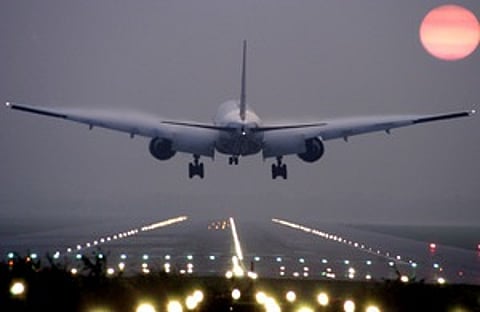UK Sets Out Strategy to Reach Net Zero Aviation by 2040
The new Jet Zero strategy sets ambitious green targets to ensure passengers will be able to fly guilt-free in the future.
Launched at Farnborough International Airshow, the strategy commits UK domestic aviation to achieving net zero emissions by 2040, and for all airports in England to be zero-emission by the same year.
It also includes a plan for the industry to stay below pre-pandemic levels of carbon emissions through measures focused on everything from delivering system efficiencies to new technologies, with progress monitored annually.
Aviation is currently responsible for around 2.5% of global carbon dioxide (CO2) emissions.
With the sector contributing $26.30 billion to our economy and set to grow as it recovers from the pandemic, the Jet Zero strategy provides the tools to help future-proof the aviation sector, deliver guilt-free air travel and create thousands more green jobs around the country.
Etihad Airways ‘Sustainable 50’ A350 Makes Inaugural Flight to New York
The whole economy will benefit as new, cutting-edge industries develop and new infrastructure is built to meet our ambitious targets, including the government’s commitment to having at least 5 commercial-scale SAF plants under construction in the UK by 2025.
Transport Secretary Grant Shapps said: “We want 2019 to be remembered as the peak year for aviation emissions. From now on, it should all be downhill for carbon emissions – and steadily uphill for green flights.
“The UK is setting an example of the ambition needed to tackle climate change, and the Jet Zero strategy provides a clear path to building a greener aviation sector for generations to come.
The 6 priority areas set out in the strategy are:
1. Improving the efficiency of our existing aviation system, from aircraft to airports and airspace. UK will improve fuel efficiency by 2% every year and are providing a further $4.42 million in 2022 to 2023 to support airports to modernise their airspace.
2. Increasing support for sustainable aviation fuels (SAF), by creating secure and growing UK SAF demand through a SAF mandate that will require at least 10% of jet fuel to be made from sustainable sources by 2030 and kickstarting a domestic SAF industry.
3. Supporting the development of zero-emission aircraft, with the aspiration of having zero-emission routes connecting places across the UK by 2030.
4. Developing carbon markets and greenhouse gas removal technologies to drive decarbonisation and offset any residual emissions, including by enhancing the UK Emission Trade Scheme (UK ETS).
5. Providing consumers with better information so they can make sustainable aviation choices. UK will publish a call for evidence on the proposal to provide consumers with environmental information at the time of booking air travel in autumn 2022.
6. Increasing understanding of the non-CO2 impacts of aviation, such as contrails and nitrogen oxides. Working closely with academia and industry to monitor global developments in this area, and explore a means of tracking these emissions.
The Jet Zero strategy builds on the Prime Minister’s Net Zero strategy, the UK’s economy-wide plan for achieving net zero emissions by 2050, as well as the Transport decarbonisation plan, which outlines the commitments and actions needed to decarbonise the entire transport system.
As part of the strategy, the government has announced today a new mandate for at least 10% SAF to be blended into conventional aviation fuels by the end of the decade.
The announcements came as the Transport Secretary launches the next phase of his historic challenge to the aviation industry to deliver the first transatlantic flight running on 100% SAF in 2023.
Following a call for expressions of interest in May this year, companies can now bid for up to $1.19 million of funding. The government will announce the final successful applicant later this year.
Read More: DHL has Recently Purchased Sustainable Aviation Fuel


